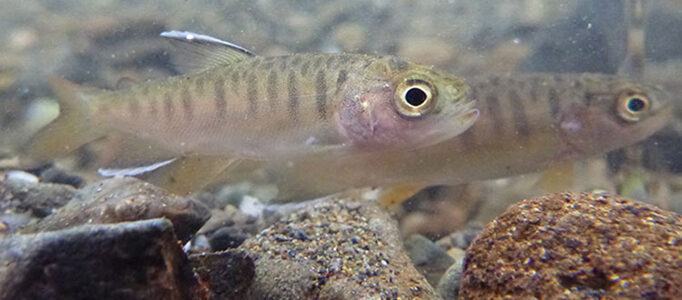Xavier Benito, postdoc affiliated with the Ruhi Lab based at the National Socio-Environmental Synthesis Center (SESYNC), just had his main project paper accepted in Limnology & Oceanography! It’s entitled Ecological resilience in tropical Andean lakes: a paleolimnological perspective, and we show results from a range of time-series methods that allow understanding ecological resilience (and different kinds of community shifts) in lake ecosystems over long timescales. Have a look here!
News
Shifting geography of cannabis cultivation in California
Chris Dillis, a postdoctoral researcher in our lab and affiliate of the Berkeley Cannabis Research Center, led a study documenting how the geography of legal cannabis market is changing in California. The study suggests that the cannabis industry is following two divergent paths: one in which smaller farms in the traditional epicenter of illicit production of northern California enter the legal market and another in which larger, new farms become established in agricultural lands that have previously not grown cannabis, especially on the central coast. Read more here!
NSF CAREER!
We’re starting the year with great news: the NSF CAREER proposal “Drought and metacommunity stability in riverine networks” was selected for funding! It focuses on how drought may limit dispersal and synchronize stream communities–directly, and by modifying predator-prey interactions. Exciting field experiments at Pinnacles National Park, labs, and time series modeling ahead! So grateful to supportive mentors and collaborators, my amazing research group, and the very special #BerkeleyFreshwater family!
Flow alteration facilitates fish invasions across the US
A new study led by Lise Comte shows how the establishment and spread of non-native fish species is explained by introductions by people coupled with alteration in flow variability and seasonality. Read more here!
On the human stabilization of river flows
Postdoc extraordinaire Lise Comte (now faculty at Illinois State University) just got this really nice paper published in Global Ecology and Biogeography, entitled “Human stabilization of river flows is linked with fish invasions across the USA”. In this paper we quantified widespread changes in river flow regimes US-wide, and found that such alteration has favored invasions by filtering specific life-history strategies. Notably, high levels of flow stabilization and propagule pressure interacted: where co-occurring, these two drivers were associated with higher fish invadedness levels than expected based on either of their individual effects alone. Check it out!
Welcome to new lab postdocs Travis Apgar & Robert Fournier!
We’re really excited to welcome two new postdocs in the lab: Drs. Travis Apgar & Robert Fournier. They will work on different aspects of our program at Pinnacles National Park, focused on the effects of seasonal and supraseasonal drying on stream invertebrate communities. Robert is joining us from the University of Arkansas, and Travis from UC Santa Cruz. Welcome to Berkeley!
New approach needed to protect health of California’s rivers
In the face of climate change, biodiversity loss and conflict over water, California urgently needs to rethink how it manages water for the environment. Read our recent blog in CalMatters.
Welcome to Amy Fingerle!
Amy Fingerle is a new grad student in the #BerkeleyFreshwater group, and will be co-advised by Stephanie and Ted. Before starting graduate school, Amy worked for the Salmon River Restoration Council. Amy dissertation research will focus on identifying spring Chinook strongholds in the Salmon River and strategies for conserving spring Chinook in the Salmon River and beyond.
Welcome to Dr. Denise Colombano!
Dr. Denise Colombano is a new postdoc in the #BerkeleyFreshwater group, and will be co-advised by Stephanie and Albert. Denise received a Delta Science Postdoctoral Fellowship to explore fish community responses to variable climate regimes, flows, and habitats along an estuarine gradient. Welcome, Denise!
Drought ‘refuges’ protect young coho salmon from summer heat

Researchers in the Department of Environmental Science, Policy, and Management tracked nearly 20,000 fish over the seven-year study.
